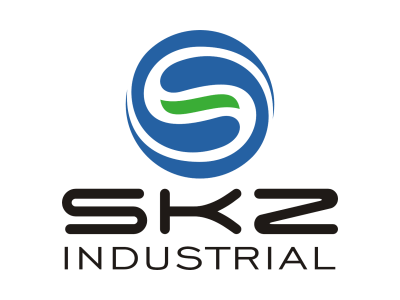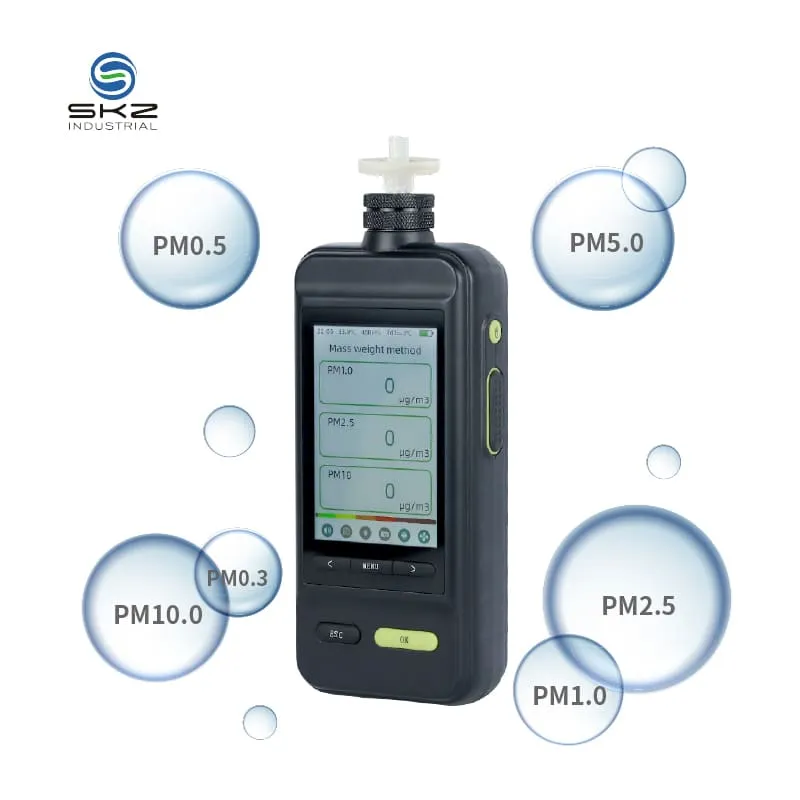Understanding Fixed Gas Detectors and Their Critical Role
How Fixed Gas Detectors Differ from Portable Systems
Stationary gas detectors are a key part of strong chemical safety systems, and these devices offer real time monitoring of specific areas. Unlike portable personal gas monitors which have to be operated manually (and then carried around your neck, belt or in your pocket) and “waved” over a suspecting area, the systems here are fitted to the building and give you a continuous, constant assessment of your air quality. That makes them perfect for areas in which gas levels must be continuously monitored.
Fixed detectors are developed for continuous use providing constant monitoring and real-time data for diffusion through into central monitoring system. In contrast to this, transportable gas detectors are generally used for single-point measurements and only record data when actively moved to different areas and locations. The continuous fixed detectors are in constant operation so any leaks and hazardous conditions can be detected and reported in order to protect the site and it's employees.
In addition, a fixed system, usually having higher sensitivity and reliability, is suitable for consistent gas exposure applications such as in chemical plants and refineries. These alarm systems also connect to warning systems and operating systems for prompt action in case of emergent conditions. Therefore, stationary gas detectors are a must to keep our industries safe.
Key Components of Industrial Gas Monitoring Systems
Key components of an industrial gas monitoring system An industrial gas monitoring system is usually built from a number of parts which cooperate and supplement each other to offer complete safety: At the heart of a fixed gas detector is the sensor itself, which comes in many different varieties—electrochemical, catalytic and infrared—depending on which gas you are looking to detect. Different sensor types provide distinctly different advantages; different detection ranges and different levels of accuracy depending on the target gases to be sensed are required for an efficient detection of gas threats.
The processing unit is also a highly important part of the monitoring method, since it is required to interpret the signals from the sensors. Such a processing unit receives and analyses signals and establishes whether a potentially hazardous gas concentration is present and if so, gives alarms when appropriate. Despite this, the majority of systems are also provided with calibration hardware to calibrate sensors so that accuracy is not affected by aging.
Other essential features include data logging capabilities and connectivity options, allowing integration into broader safety management systems. These additions enable detailed record-keeping and facilitate compliance with industry safety regulations. By ensuring seamless integration and reliable operation, these components collectively enhance the effectiveness of industrial gas monitoring systems.
Why Fixed Gas Detection is Essential for Safety & Compliance
24/7 Hazardous Gas Monitoring in High-Risk Areas
Gas monitoring is an integral part of safety in industry as it is essential to monitor for hazardous gases on a constant basis. That’s because the presence of toxic gases can pose significant health hazards and shut down operations. By having fixed gas detectors installed, the facility will be able to respond to gas leaks quickly, dramatically reducing the risk to personnel safety and efficiency. For example, those who implemented real-time gas monitoring are statistically less likely to experience major safety incidents. Such continuous monitoring is feasible because installed fixed systems are placed in strategic areas to consistently monitor a specified area for prolonged durations without laborious, routine manual handling unlike portable detectors.
Preventing Combustible Gas Accumulation
Fixed gas detection protect against the potentially catastrophic gas is simply allowed to accumulate. When utilizing gas detectors that are factory set with the proper sensitivity for combustible gases, facilities can guarantee early detection and take swift action to avoid explosions or fires. Case examples have shown that early gas detection approaches can reduce the number of workplace fires considerably. This protective layer not only takes care of your physical infrastructure, but it also ensures your employees safety,further highlighting how important it is to include fixed detection in your entire safety management.
Meeting OSHA and Industry-Specific Regulations
Occupational Safety and Health Administration (OSHA) requirements and other regulatory requirements for various industries require the use of fixed gas systems in areas where hazardous gases are present. Frequent system upkeep and recalibration is necessary in order to comply with standards and remain not only safe, but compliant. In addition, failure to comply with these requirements can lead to substantial fines. In addition to the cost of damage, there is the human and operational cost associated with safety events which represent significant financial liabilities, and thus create great motivation for industries to utilize reliable fixed gas detection. As such, maintaining compliance meets not only the legal and ethical needs but also the safety needs of a work environment.
Fixed Gas Detector Technologies and Applications
Multi-Gas Detection Capabilities
Fixed gas detectors: These are versatile gas detection product we provide, commonly be used to monitor for combustible and toxic gases at various worksites because there are multiple gases exist. This is vital because in applications such as oil and gas, the existence of various types of gases can create hazardous operating conditions. Recent studies show, the use of multi-gas detectors improve operational safety with detailed data needed for efficient risk management. So-called "multi-gas detector portable" instruments of this type combine the monitor functions of numerous single gas monitors in one unit, and therefore they save space and resources.
- Benefits of multi-gas detectors in hazardous environments:
- Enhanced safety through simultaneous monitoring of explosive, toxic, and oxygen-deficient gases.
- Reduction in equipment and operational costs by eliminating the need for multiple single-gas units.
- Comprehensive data collection that supports improved risk assessments and safety protocols.
The need for regular calibrations and system integrity checks helps guarantee the multi-gas detection’s sensitivity and accuracy. It is an essential part of safety systems, giving decision-makers quick and accurate information during gas leak incidents. So, working with dependable multi-gas detectors is not just a fundamental operation necessity; it's also a key part of a proactive safety approach.
Integration with Facility Safety Systems
It is one of the best ways to have a complete safety management and the emergency protocols. This integration is important because it enables the automatic triggering of alarms, ventilation mechanisms, and emergency stop processes in case of gas leakage. Pushing updates immediately into centralized monitoring centers can give sites better oversight, as well as confidence that they are using the most up-to-date, effective safety protocols.
Also, the integration of gas detection systems with other safety equipment makes for faster and more straightforward emergency response. Multiple response teams may be automatically notified, so a quicker, more coordinated response to potential threats is possible. Ultimately, integrating gas detection systems with wider safety systems that monitor various other aspects of a building is as much about saving human resources as it is about saving equipment / assets from the potential damage of unrestrained gas escape. This dovetailing is necessary since for the purposes of operational continuity and responsiveness all emergencies and potential emergencies need to be addressed speedily.
SKZ Industrial Co., Limited: Advanced Monitoring Solutions
SKZ's Expertise in Gas and Dust Monitoring Equipment
About SKZ SKZ Industrial Co., Limited, which was established in the 1980s, is as a leader in the field of gas and dust analysis in China. Having more than 17 years of experience, SKZ has developed a full range of high-quality services being able to meet the requirements of industry sectors. Our focus on offering individual, customer marketsolutions, has turned us into a specialist for gas monitoring systems. Many satisfied SKZ customers allow their experience speak for itself, our equipment performs exceptionally in rough settings that are typical in industry, making our products the preferred gateway to industrial test and measurement.
Besides of Gas Monitoring – SKZ is a Specialist in Dust Monitor. They are designed for optimal measurements and control of dust concentrations in industrial applications to comply with health and safety regulation. By paying attention to detail and striving for perfection, SKZ’s industrial dust monitoring instruments enable companies to remain in compliance with air quality regulations while safeguarding the health of plant employees.
Certified Fixed Detectors for Industrial Environments
All of SKZ’s fixed gas detector range is manufactured to the highest of International Standards, in our dedicated facility. These certifications are testimony to the superior quality and reliability that is built in to SKZ’s products and are essential in high risk industrial sectors. Certified monitoring systems such as those from SKZ, not only ensure the provision of safety required by regulation, but also lower an accident rate in companies. Our safety-first, data-driven tools demonstrate that a company prioritizes securing a safe operational environment, leading to added worker safety and operational efficiency.
Customizable Systems with IoT Connectivity
Utilizing state-of-the-art technology, SKZ provides customizable gas detection systems featuring IoT capability for advanced data management and remote monitoring. These IOT-connected sensors easily work with your current digital systems in place at the plant, are smart, fast, prevent downtime and provide data. Currently, using the IoT for gas detection is a rising trend beginning to alter how safety procedures are conducted by making possible early hazard detection and earlier responses. SKZ's forward thinking solution improves Operational Safety; providing the mean to businesses to ensure their safety is 'best in class' and keep pace with a changing industrial environment.

